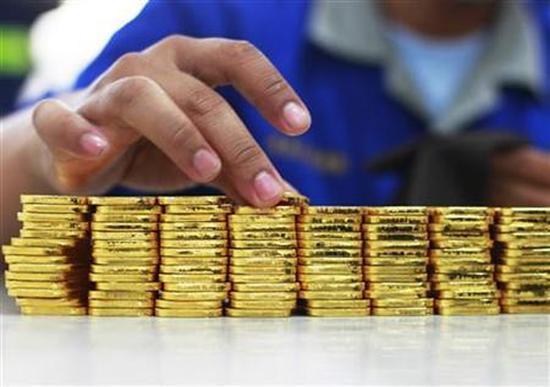
Government is mulling ways to curb gold imports, as it is causing trade gap to widen and also current account deficit. The writer suggests that the government should maintain it as an attractive investment avenue while framing policies.
The import of two items contributes disproportionately to India's record trade gap and current account deficit.
One of these, namely energy imports, is unavoidable. The strong demand for the other item - gold - is driven by several factors and may perhaps be reduced.
India imports up to a quarter of annual global production, and gold imports equal 75 per cent of the current account deficit. Gold has always been a traditional repository of savings, and households contribute 80 per cent of demand.
An estimated 25,000 tonnes of bullion is held by Indian households. While that is an impressive stock of wealth, it is unproductive and earns no interest. It has, however, been an excellent hedge against inflation.
In the last three years, high inflation and slow GDP growth have made alternative assets like equity and debt unattractive. At the same time, gold has gained against hard currencies, as debt-to-GDP ratios have hit worrying levels across the euro zone and the US.
...

Massive imports by India, of $60 billion and 1,067 tonnes in 2011-12 (up from $40 billion in 2010-11), have contributed in pushing prices to record levels.
Sophisticated investors have opted for exchange-traded funds, or ETFs, rather than physical metal, leading to a 300 per cent rise in assets under management by gold ETFs since September 2010. In terms of quantity, imports may drop to 800 tonnes this fiscal year.
However, rising prices ensure that this will still exert substantial pressure on the balance of payments. Worried, the government and the Reserve Bank of India ( RBI) have already undertaken some measures to retard demand.
Import duties were doubled in the last Budget. Banks have been instructed to stop lending against gold and also against offering loans to buy gold. Non-banking financial companies have had prudential loan limits cut to 60 per cent of metal value.
Thus far, the central bank has also refused to allow banks to buy back gold they have sold, despite requests from the banks. Harsher measures may be counterproductive.
If import duties are raised to punitive levels, it will provide an incentive for smugglers, as in the era of the Gold Control Act. Further restrictions on loans through official channels would drive borrowers into the arms of mahajans and deprive small businesses of access to affordable capital.

The asset mis-allocation arising from a focus on gold is unlikely to change until there's an economic rebound. The policy priority now should be to reduce imports, without depriving investors of possible upsides from holding the metal.
The gems and jewellery industry has suggested ways in which domestic institutions could release some holdings for exports via, say, "working capital" loans of gold.
A scheme where individual Indians can sell gold for hard currency may help reverse the one-way flow, but this is probably too radical for the mandarins to consider.
Creative financial engineering could perhaps find other ways to unlock that store of 25,000 tonnes. RBI Deputy Governor Subir Gokarn.recently suggested offering gold-backed bonds or reverse mortgage schemes on household holdings of the metal.
Previous experiments with such schemes have not been successful. This was partly due to rigidity in income-tax treatment and also because jewellery had to be melted down.
Any new scheme would have to be structured to circumvent such known issues - but, given the trend, the sooner such ideas are implemented, the better.